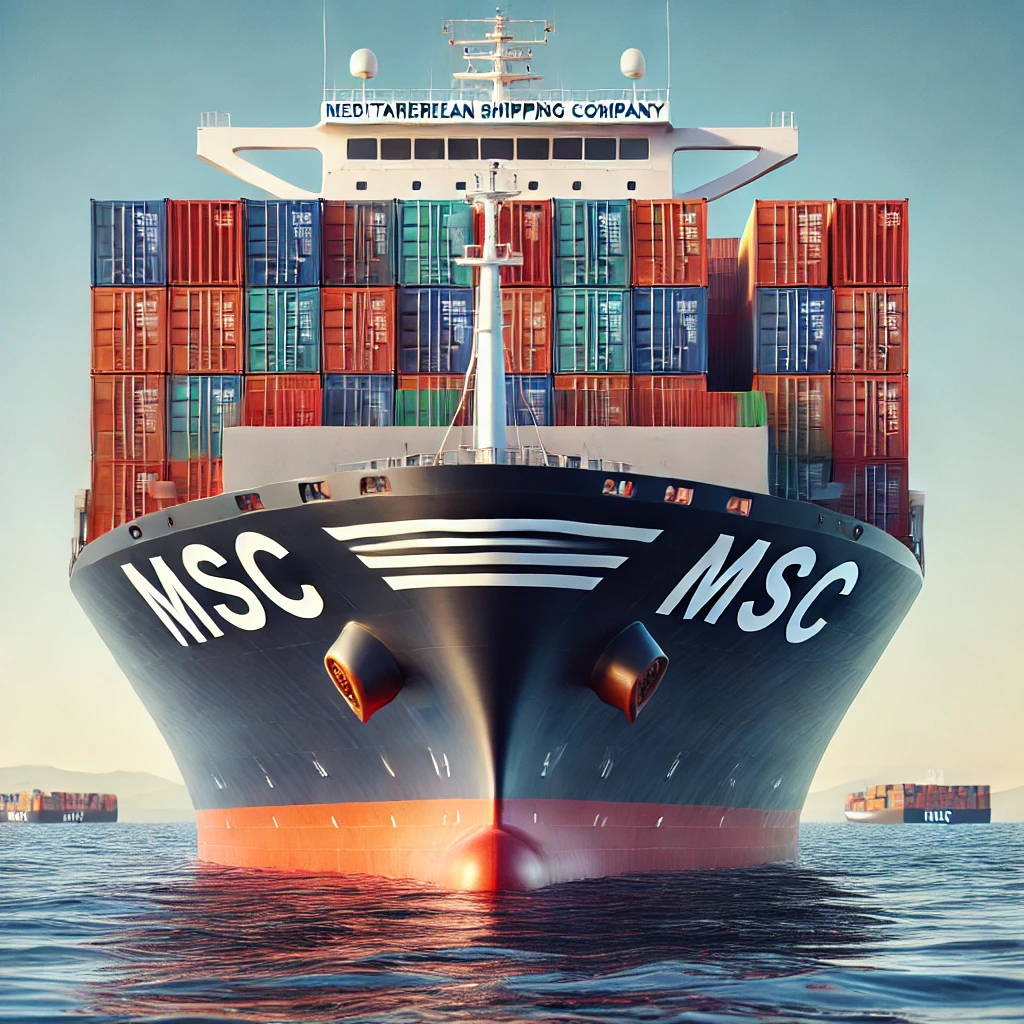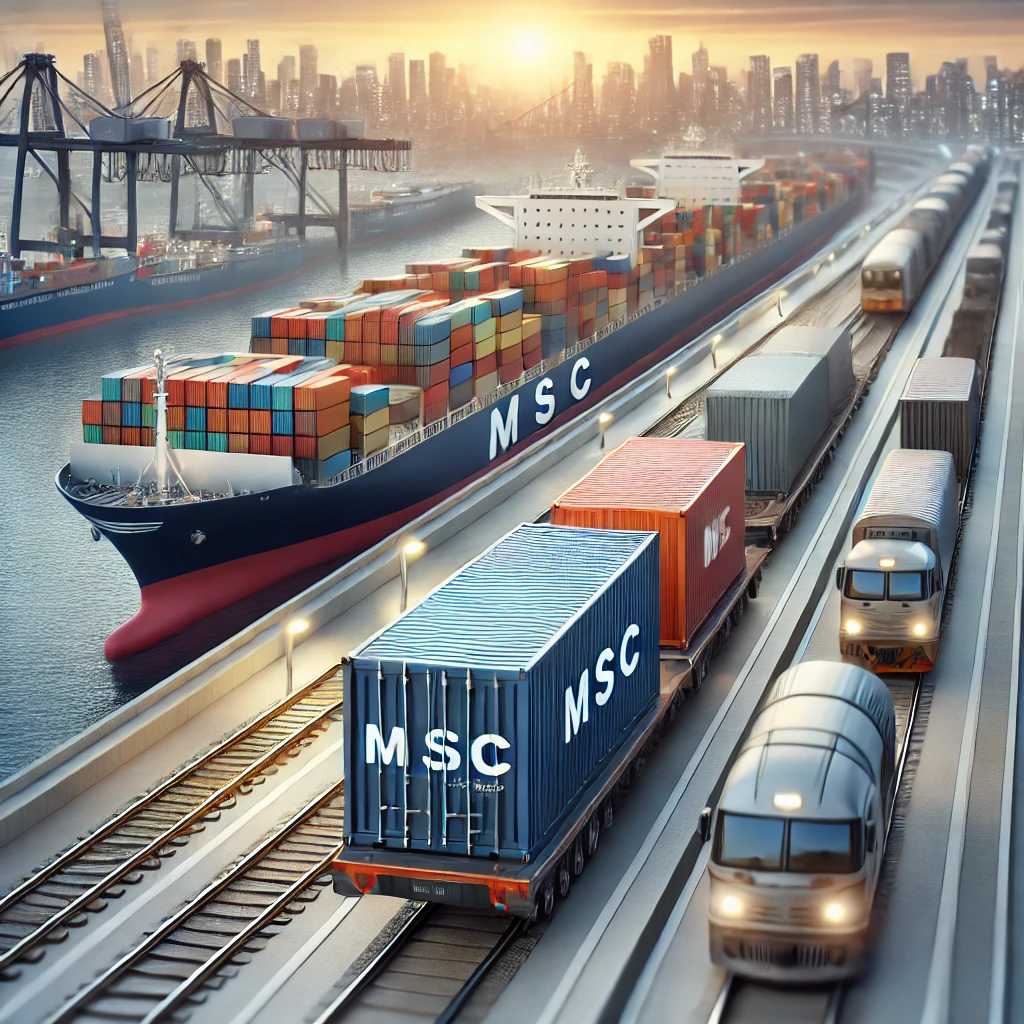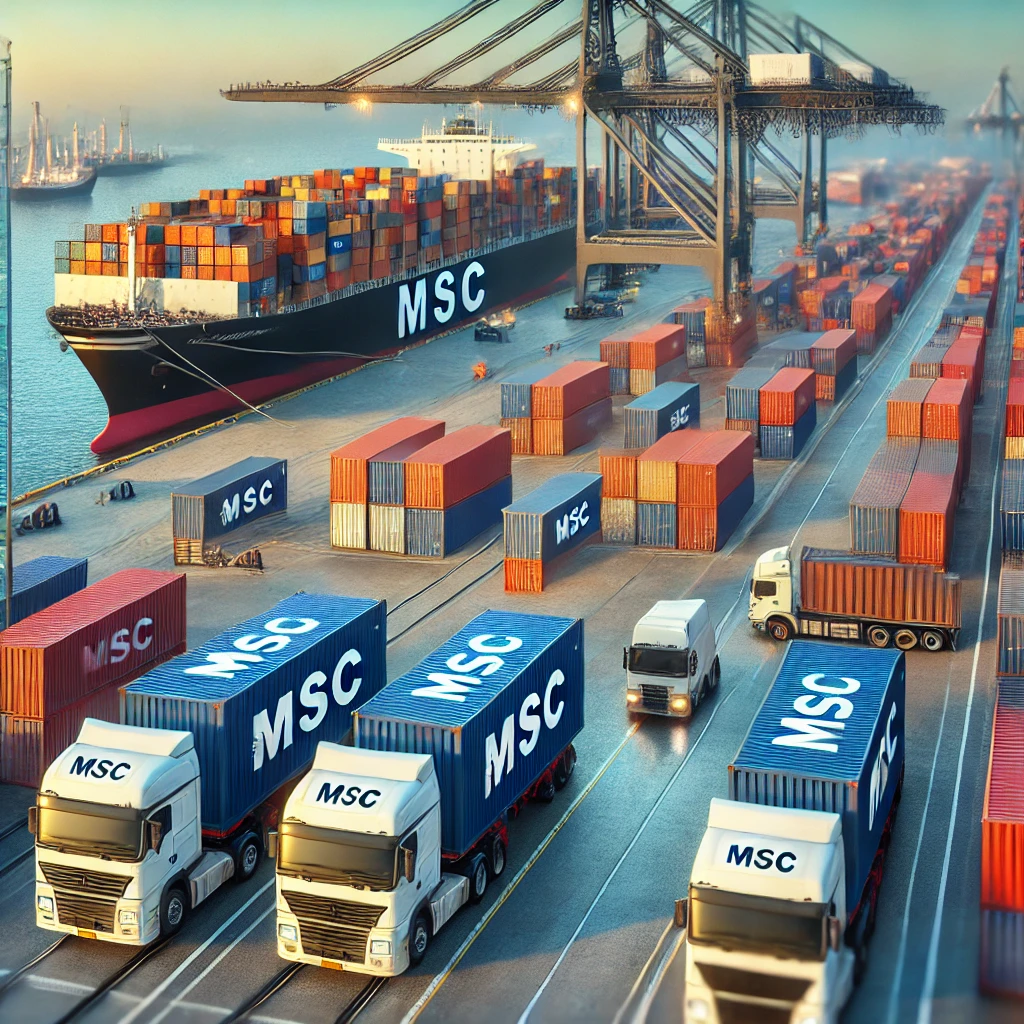Tracking MSC: A Comprehensive Guide to MSC Container Tracking and Shipping Services

Understanding MSC Tracking
MSC tracking is a service provided by Mediterranean Shipping Company that allows shippers, consignees, and logistics professionals to monitor the status and location of their containers in real-time. But what exactly does this entail, and how can you make the most of this service?
What is MSC Tracking?
MSC tracking is a digital system that provides up-to-date information on the location and status of containers shipped via MSC. This service is essential for:
- Supply chain visibility
- Efficient logistics planning
- Timely decision-making
- Customer service improvements
How to Use MSC Tracking
To track your MSC container:
- Visit the official MSC website (www.msc.com)
- Navigate to the “Track a Shipment” section
- Enter your container number, booking number, or Bill of Lading number
- Click ‘Track’ to view your container’s current status and location
MSC Container Tracking: A Deeper Dive
MSC container tracking is the backbone of the company’s tracking services. Let’s explore this in more detail.
Features of MSC Container Tracking
- Real-time Updates: Get the latest information on your container’s location
- Milestone Tracking: Follow your container through key points in its journey
- ETA Information: Access estimated time of arrival data
- Document Access: View and download relevant shipping documents
Benefits of Using MSC Container Tracking
- Improved Planning: Accurate tracking allows for better logistics and inventory planning
- Risk Mitigation: Early awareness of delays enables proactive problem-solving
- Customer Satisfaction: Provide your customers with accurate delivery estimates
- Cost Efficiency: Better tracking can lead to reduced demurrage and detention charges
MSCU and MSDU Tracking: Understanding MSC's Container Prefixes
You might have come across terms like “MSCU tracking” or “MSDU tracking” in your shipping operations. But what do these mean?
What are MSCU and MSDU?
MSCU and MSDU are container prefixes used by MSC. In the shipping industry, these prefixes are used to identify the owner or operator of a container.
MSCU and MSDU Container Tracking
When you’re tracking an MSC container, you’ll often see the MSCU or MSDU prefix followed by a series of numbers. For example, a container number might look like MSCU1234567 or MSDU7654321.
To use MSCU or MSDU tracking:
- Note the full container number, including the prefix
- Use this number in MSC’s tracking system
- Get real-time updates on your container’s location and status
MSC Tracking and Tracing: More Than Just Location

While location tracking is a crucial service, MSC tracking and tracing encompasses more than just pinpointing your container on a map.
Components of MSC Tracking and Tracing
- Vessel Tracking: Monitor the location and status of MSC’s ships
- Schedule Tracking: Keep up with MSC’s sailing schedules and any changes
- Port Information: Access details about ports serviced by MSC
- Customs Status: Get updates on your shipment’s customs clearance progress
How MSC Tracking and Tracing Enhances Shipping Operations
- Better Route Planning: Understand vessel movements for optimal cargo routing
- Improved Coordination: Align your operations with MSC’s schedules
- Enhanced Communication: Use tracking data to keep stakeholders informed
- Compliance Management: Stay on top of customs requirements and processes
MSC Cargo Tracking: Focus on Your Freight
MSC cargo provides a more comprehensive view of your shipment, going beyond just container location.
Features of MSC Cargo
- Cargo Details: Access information about the nature and quantity of your goods
- Temperature Monitoring: For reefer (refrigerated) containers, track temperature conditions
- Customs Documentation: View and manage customs-related paperwork
- Multi-Container Tracking: Track multiple containers under a single booking or Bill of Lading
Benefits of MSC Cargo
- Quality Assurance: Ensure your cargo is maintained under proper conditions
- Compliance: Manage customs documentation more effectively
- Efficiency: Streamline your logistics operations with comprehensive cargo information
- Risk Management: Identify and address potential issues before they escalate
MSC Track and Trace: A User-Friendly Approach
MSC’s track and trace system is designed to be user-friendly and accessible, even for those new to shipping logistics.
Key Features of MSC Track and Trace
- Intuitive Interface: Easy-to-use design for quick access to information
- Multiple Search Options: Track by container number, booking number, or Bill of Lading
- Detailed Timelines: View a chronological list of your shipment’s milestones
- Map Visualization: See your container’s journey plotted on an interactive map
Tips for Effective Use of Trace
- Bookmark the page for quick access
- Set up email or SMS alerts for important milestones
- Use the “My Shipments” feature to save and manage multiple trackings
- Familiarize yourself with MSC’s shipment statuses and what they mean
MSC Vessel: Following Your Cargo's Journey
MSC vessel tracking allows you to monitor the ships carrying your containers, providing an additional layer of visibility.
How Vessel Tracking Works
- Vessel Identification: Each MSC ship has a unique identifier
- AIS Technology: Ships are tracked using Automatic Identification System (AIS) technology
- Real-time Updates: Get frequent updates on a vessel’s position, speed, and heading
- Port Calls: View scheduled and actual arrival/departure times at various ports
Benefits of Vessel Tracking
- Accurate ETA Predictions: Better estimate when your cargo will arrive
- Route Visualization: Understand the path your shipment is taking
- Weather Impact Assessment: Correlate vessel movements with weather conditions
- Port Congestion Insights: Anticipate potential delays due to port traffic
MSC Number: The Key to Your Shipment's Information
Understanding how MSC tracking numbers work is crucial for effective use of their tracking services.
Types of MSC Numbers
- Container Number: Unique identifier for each container (e.g., MSCU1234567)
- Booking Number: Assigned when you book a shipment with MSC
- Bill of Lading Number: Issued when your cargo is loaded onto the vessel
How to Use Different MSC Tracking Numbers
- Container Number: Best for tracking individual containers
- Booking Number: Useful for tracking multiple containers in a single shipment
- Bill of Lading Number: Provides comprehensive shipment information, including customs status
MSC Tracking: From Origin to Destination
MSC shipment tracking provides a holistic view of your cargo’s journey from the point of origin to its final destination.
Key Milestones in MSC Tracking
- Booking Confirmed: Your shipment is registered in MSC’s system
- Container Gated In: Your cargo is loaded into a container at the origin port
- Vessel Departure: The ship carrying your container leaves the origin port
- Transshipment (if applicable): Your container is transferred to another vessel
- Vessel Arrival: The ship reaches the destination port
- Container Discharged: Your container is unloaded from the vessel
- Container Gated Out: Your cargo leaves the destination port
Leveraging Shipment Tracking for Supply Chain Optimization
- Inventory Management: Align your stock levels with accurate arrival times
- Customer Communication: Keep your clients informed about their shipments
- Resource Planning: Allocate staff and equipment based on expected arrival times
- Performance Monitoring: Track key metrics like transit times and on-time delivery rates
MSC Tracking API: Integration for Enhanced Efficiency
For businesses handling large volumes of shipments, offers an API (Application Programming Interface) for seamless integration of tracking data into your own systems.
Benefits of Using MSC API
- Automation: Automatically retrieve tracking updates without manual input
- Data Integration: Incorporate MSC tracking data directly into your logistics software
- Custom Alerts: Set up personalized notifications based on specific criteria
- Scalability: Easily manage tracking for a large number of shipments
Implementing MSC API
- Register for API access through MSC’s customer portal
- Review the API documentation provided by MSC
- Develop or adapt your software to interact with the API
- Test the integration thoroughly before full implementation

The Future of Tracking
As technology evolves and shipping needs change, tracking is likely to adapt. Here are some potential future developments:
- Enhanced AI Predictions: More accurate forecasting of shipment ETAs and potential delays
- Blockchain Integration: Improved security and transparency in tracking data
- Internet of Things (IoT): More detailed tracking of container conditions (temperature, humidity, shock)
- Augmented Reality: Visualization of container locations in ports and on vessels
Conclusion: Maximizing the Benefits of Tracking MSC
Tracking MSC, whether it’s MSC container tracking, MSCU , or the comprehensive MSC cargo , offers powerful tools for managing your shipments. By understanding these services and how to use them effectively, you can enhance your supply chain visibility, improve your logistics planning, and ultimately provide better service to your customers.
Remember, in the world of global shipping, information is power. MSC tracking puts that power at your fingertips, allowing you to navigate the complexities of international logistics with confidence. Whether you’re a small business owner managing occasional shipments or a large corporation with complex supply chains, mastering tracking can give you a significant advantage in today’s fast-paced, globally connected marketplace.
As you move forward with your shipping operations, consider how you can best leverage MSC to meet your specific needs. With the right approach, these tracking services can become more than just a way to locate your containers – they can be a key driver of efficiency, reliability, and success in your logistics operations.
